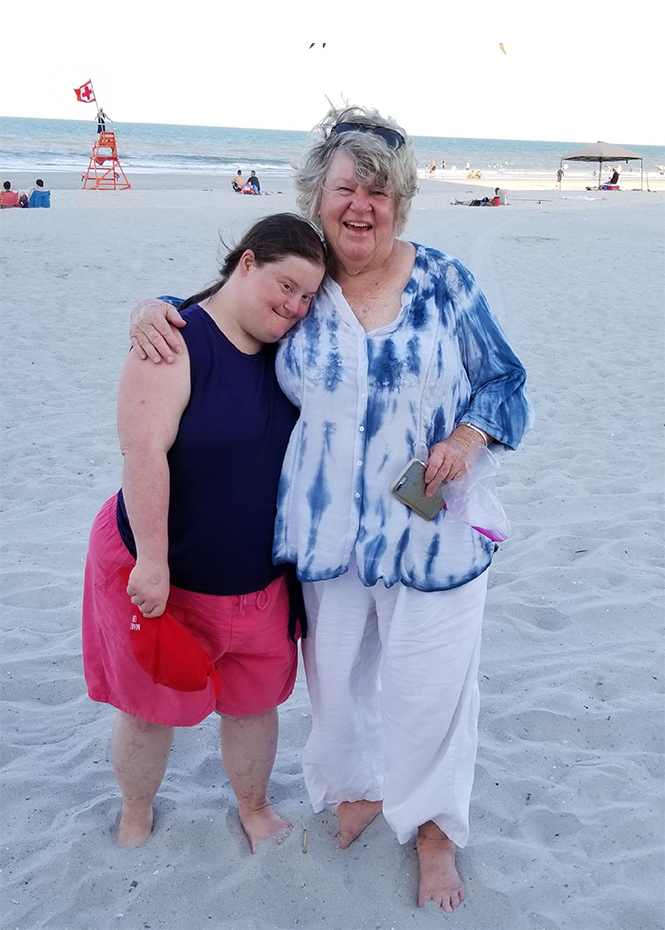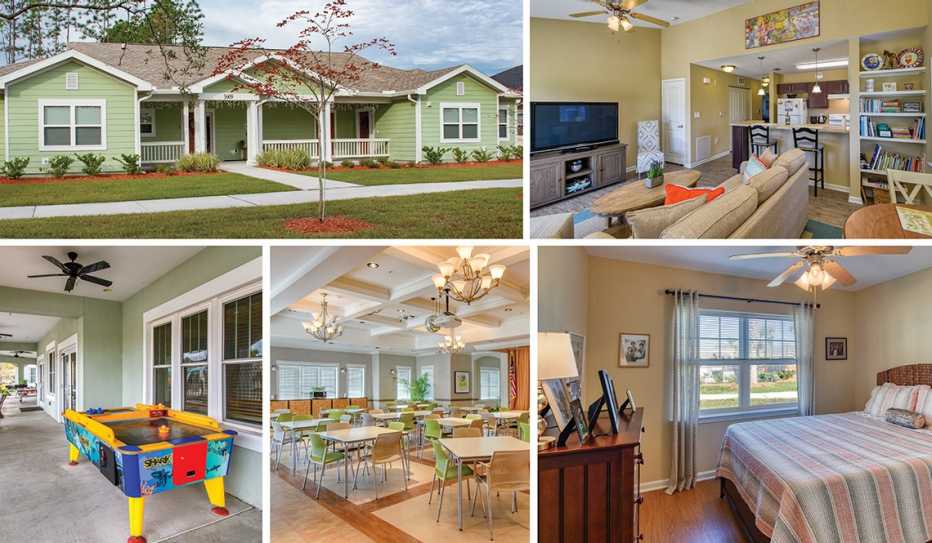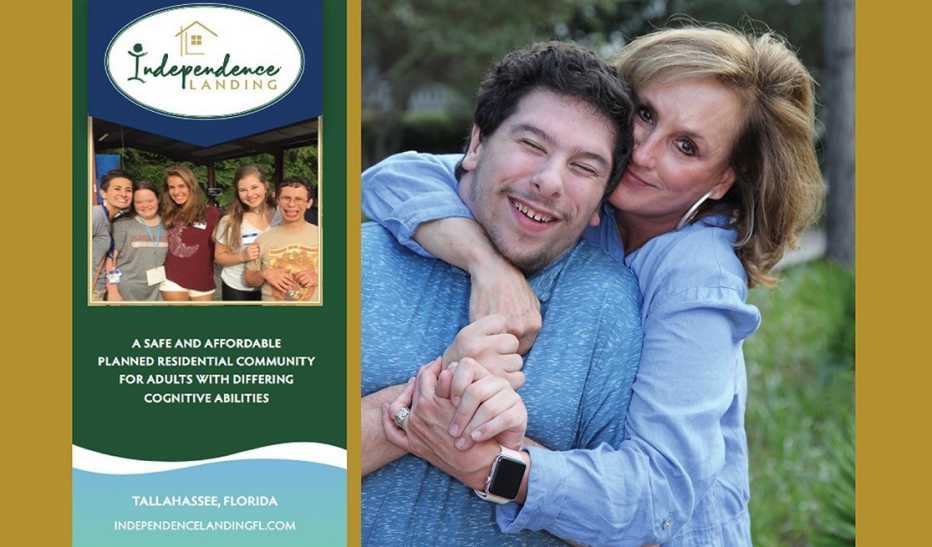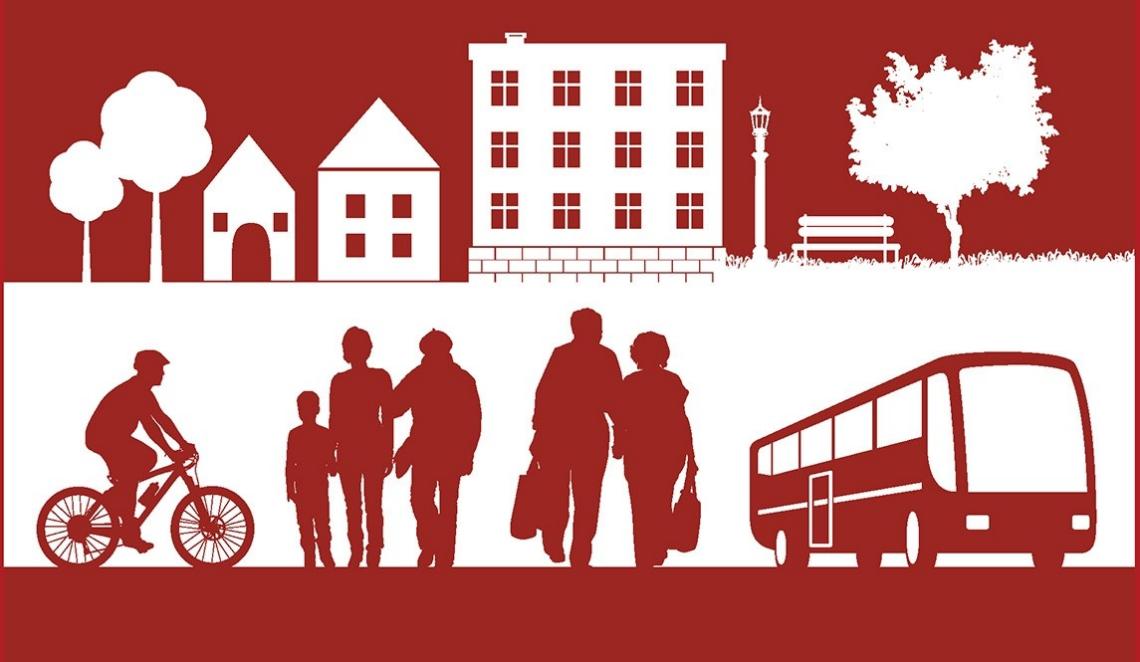AARP Hearing Center
Although the lack of affordable housing is a nationwide crisis, among the hardest hit are people with intellectual and developmental disabilities or differences (commonly abbreviated as I/DD).
It Took a Village


Bernadette Moran joined The Arc Jacksonville’s board when her daughter was six years old. Moran is among the parents who advocated for the community Moira and other adults with I/DD now call home.
The inevitable and heartbreaking question that haunts every parent of a person with special needs, “What will happen to my child when I’m gone?”
According to research by the University of Minnesota’s Institute on Community Integration and The Arc, a nonprofit organization that “promotes and protects the human rights of people with intellectual and developmental disabilities,” an estimated 80 percent of adults with I/DD live with a family caregiver.
Access to affordable and accessible housing beyond a family home, in a setting with adequate support, remains a challenge for people with I/DD. Bernadette Moran's daughter, Moira, is in her mid-30s and has I/DD.
Moran and her late husband, Frank, worried about Moira’s future without them. At times, the worry was all-consuming.
“The parents of children with disabilities don’t have the options other parents have,” says Moran. “We worried, ‘What if something happens to us before we find a solution?’ The available options were, more or less, live in a group home — if she could even get into a group home — although she doesn’t need the level of supervision a group home offers. Moira really needed and wanted to be free and fly and make her own decisions.”


A "Model" Home
A solution emerged for Moira and her parents in 2016, when The Arc Jacksonville Village* — the nation’s first affordable, apartment-style community for adults with I/DD — opened its doors.
The community provides housing in one- and two-bedroom apartments for 121 residents in a neighborhood setting, complete with a community center and recreational facilities. The development, which is within walking distance of shopping and entertainment, has become a model for similar parent-led housing initiatives, two of which — Independence Landing and Casa Familia — are discussed later in this article.
Jim Whittaker, the president and CEO of The Arc Jacksonville Village, spearheaded the $22.2 million residential development and has been a leader in developing community-based programs for people with I/DD for 40 years.
"There wasn’t really a model out there. Most housing options for people with I/DD are group homes with 24/7 supervision or supported living, where an individual rents an apartment in a neighborhood with supports as needed," he explains. "Some folks are really successful at that, but many need a greater sense of community and belonging."
The design concept for the Village, says Whittaker, "was to make it like a neighborhood, with big porches to encourage socializing and a community center where people can hang out.”
All Village residents are 18 or older. (The average age is 30.) Roughly 80 residents work 10 to 40 hours a week in town. The Arc assists with job placements and volunteer opportunities.
Although residents must be able to live independently with minimal support, the Village community is staffed around the clock. There are the daytime workers, a live-in night staff and a security patrol. Each resident has a coach who, Whittaker says, “guides them along but doesn’t smother them. If they only need 2 hours a week or 10 of coaching, that’s what they get. Programs are tailored to the individual. When anyone needs immediate assistance, there is an intercom in every apartment."
Residents come from throughout the country. Half receive Medicaid waiver funding. The other half are funded privately, usually by families.
Rent is based on 60 percent of market rate, so a one-bedroom apartment costs about $800 per month. (That doesn't include utilities, food, personal expenses or support services such as transportation, housekeeping or training.) The maximum allowable income, including federal Supplemental Security Income benefits ($967 monthly in 2025), is $30,000 yearly in combined benefits and income, although most residents don't reach that amount. All residents receive a weekly wellness check. The average wait for a vacancy is three to four years.
Once a spot opens and an applicant meets the eligibility requirements and is deemed a good fit, the Village can become that person's home for life.
It Takes a Village to Build a Village
The Arc Jacksonville is a chapter of The Arc of Florida and The Arc, which is the nation's largest community-based organization serving and advocating for people who have intellectual and developmental disabilities. Most Arcs offer group homes, supported living services, daytime activities and employment services.
No two Arcs are alike and each has its own board of directors. “We are the only one that has a Village-like community,” Whittaker explains.
The Arc Jacksonville began in 1965 as an initiative by parents seeking educational options for their I/DD children. Bernadette Moran joined the board in the mid-1990s, when Moira was six years old. Moran is among the parents who helped make the Village a reality.
“There were a number of parents on the board, Moran explains, adding that when Whittaker asked about their goals, "We said, ‘We all want a place for our kids to live. We want a place that’s safe, where they’ll have friends and independence, although they still need oversight.”
Whittaker knew of about 50 acres of unused land that had been gifted to the state of Florida decades earlier. “The story goes that one of the donors had a family member with I/DD, so they attached a deed restriction that the land had to benefit folks with I/DD,” he explains. “I approached the state and got our legislators behind it. The process took about four years.”
The Arc secured a 99-year lease for 32 acres and built on 17 acres. Whittaker went to the Florida Housing Finance Corporation and, he says, “basically made them aware of the housing crisis for our folks and said, 'Wouldn't it be nice if there were funds set aside specifically for housing for I/DD individuals?' They listened — and they did it!”
The project received $11.5 million in tax credits and $4 million in state grants. Another $7 million was secured through fundraising.
Parents Lead the Way


Word spread about The Arc Jacksonville Village housing model.
“The interest in the country is overwhelming and many projects are in development or planning,” says Whittaker. Since the Village opened, seven similar communities have been built in Florida, with four more in the works. All of the communities have a wait list. One of the new residences is the Tallahassee based Independence Landing. Whittaker was a consultant on the project. Similar communities are being planned in many other states, he says.
Allison Tant, who helped launch Independence Landing, has an adult son with Williams Syndrome (a rare genetic condition). She is also a member of the Florida House of Representatives. “I actually ran for the legislature based on my son's life experience and families like mine that are facing much greater challenges,” says Tant.
When she learned about the Village model, Tant was determined, she says, “to have the same opportunity here in Tallahassee for my son and others like him.” She met with the Florida Housing Finance Corporation, put together a board of top-notch community leaders and got to work. Thanks to her legislative connections and political savvy, Tant’s timeline was phenomenally short. “We organized in 2017, got the land in 2018 and got funded in 2020,” she says.
Independence Landing will be, according to its website, a “safe, affordable, residential community ... for adults with intellectual and/or cognitive disabilities.”
"What Will Happen to Our Kids When We're Gone?"
Another community for adults with I/DD is being developed in Kendall, located in South Florida's Miami-Dade County. It stems from the efforts and shared fears of eight families who have children with I/DD.


“We got together frequently," says Debbie Lawrence, the mom of a teenage son with autism. "We began our research and soon came up with the idea to build a community. We visited models in Florida and across the country and learned about the Low-Income Housing Tax Credit program, which was used to fund other I/DD housing communities in Florida.”
The families founded the nonprofit Casa Familia in 2015. Lawrence serves as the senior housing director. They assembled a board of directors, each of whom — a lawyer, architect, banker — had a needed professional skill, and they partnered with a developer and service provider. The Arc’s Jim Whittaker was enlisted as an advisor.
Florida Housing provided $15 million in federal tax credits and a $4 million grant. Miami-Dade County helped secure a lease for a well-located, 9 acre property. Phase I will create 50 one- and two-bedroom apartments that, together, will accommodate approximately 60 adults. There will also be an 11,000-square-foot community center. The planned 2020 groundbreaking was delayed due to the COVID-19 pandemic.
Needed Relief
“I’ve gone from staring up at the ceiling and wondering, ‘What’s going to happen next?’ to staring up at the ceiling and planning,” says Lawrence.
“I remember thinking, 'I am going to be 80 and panicked about dying,'” Allison Tant says about her worries.
For Moira Rossi’s parents, the Village is an answer to their prayers.
“Our daughter doesn't have any siblings. She has cousins, and I hope they’ll be there for her, but I don't want them to have that responsibility,” says Moran. “The Village will be there and she’ll be well cared for over the long term. The Village affords peace of mind for me and my husband — who just turned 80. I can't tell you the amount of comfort it provides us.”
Amy Lennard Goehner is the parent of an adult son with autism. He lives in a residential community for people with I/DD. Learn more by reading "Finding a 'Forever Home' for My Adult Son With Autism."
* The inclusion of specific communities and programs in the article “Parents Are Creating Communities for Their Grown Children Who Have Special Needs” is not an endorsement by AARP.
Page published November 2021 | Related links box, SSI benefits and some other data updated in March 2025
This article and its three companion pieces (below) are award-winning!
2022 Hermes Creative Awards (Gold) | dotCOMM Awards (Platinum) | Folio: Eddie Awards (Finalist)
Related and new!



































































